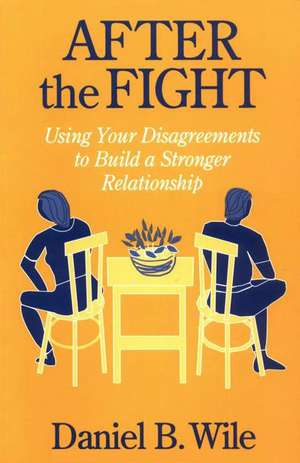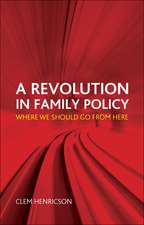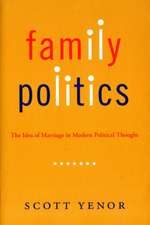After the Fight: Using Your Disagreements to Build a Stronger Relationship
Autor Daniel B. Wileen Limba Engleză Paperback – 23 noi 1995
What do partners do after a fight? If they're like most people, they apologize: I'm sorry. I had a bad day and I took it out on you. Or, they wake up the next morning and pretend that nothing happened, hoping their partner will do the same. In neither case do they talk about the fight. They're too afraid that doing so will simply rekindle it--and they're right; it probably would. But since they don't talk about the fight, nothing ever really gets resolved.
Daniel B. Wile, author of Couples Therapy and After the Honeymoon, devotes this entire book to an analysis of a single night in the life of a couple, Marie and Paul. By tapping into their self-talk (their ongoing conversations with themselves), he discovers what starts, escalates, and rekindles fights--and also, what potentially allows for a useful conversation about a fight. Wile reveals the half-thoughts and half-feelings that generally go unnoticed: the anxious flashes; depressive waves; two-second, self-directed diatribes; and two-second mental divorces.
Daniel B. Wile, author of Couples Therapy and After the Honeymoon, devotes this entire book to an analysis of a single night in the life of a couple, Marie and Paul. By tapping into their self-talk (their ongoing conversations with themselves), he discovers what starts, escalates, and rekindles fights--and also, what potentially allows for a useful conversation about a fight. Wile reveals the half-thoughts and half-feelings that generally go unnoticed: the anxious flashes; depressive waves; two-second, self-directed diatribes; and two-second mental divorces.
Preț: 228.46 lei
Preț vechi: 240.48 lei
-5% Nou
Puncte Express: 343
Preț estimativ în valută:
43.72€ • 45.59$ • 36.34£
43.72€ • 45.59$ • 36.34£
Carte tipărită la comandă
Livrare economică 21 martie-04 aprilie
Preluare comenzi: 021 569.72.76
Specificații
ISBN-13: 9781572300262
ISBN-10: 1572300264
Pagini: 326
Dimensiuni: 152 x 229 x 26 mm
Greutate: 0.52 kg
Ediția:Revised
Editura: Guilford Publications
Colecția Guilford Press
ISBN-10: 1572300264
Pagini: 326
Dimensiuni: 152 x 229 x 26 mm
Greutate: 0.52 kg
Ediția:Revised
Editura: Guilford Publications
Colecția Guilford Press
Public țintă
Professional Practice & DevelopmentNotă biografică
Daniel B. Wile, PhD, ABPP, until his death in 2020, had a private practice in individual and couple therapy in Oakland, California. He was also Assistant Clinical Professor at the University of California, Berkeley. Dr. Wile published on psychotherapeutic theory as well as on couple therapy. The pioneering developer of Collaborative Couple Therapy, he gave professional workshops throughout the United States and internationally.
Recenzii
An inspirational book. It is one of the most unique and creative books about couples I have ever read. It captures not only the subtleties of couple interactions, but also the nuances of couples therapy. I plan to assign this book to all of my graduate students, and will open it myself whenever I need to be reminded of how exciting it is to study and treat couples. --Neil S. Jacobson, Ph.D., University of Washington
Reading After the Fight is the next best thing to being in the room with Daniel Wile, widely renowned as a creative and masterful couples' therapist....Wile shows a remarkable capacity to put words to the vague and amorphous thoughts of the partners as well as the therapist.... He lets us in on his innermost thoughts and quandaries as a therapist and offers a multitude of examples and direct dialogue to make his approach come alive. --Gayla Margolin, Ph.D., Professor of Psychology, University of Southern California
-Reading After the Fight is the next best thing to being in the room with Daniel Wile, widely renowned as a creative and masterful couples' therapist....Wile shows a remarkable capacity to put words to the vague and amorphous thoughts of the partners as well as the therapist.... He lets us in on his innermost thoughts and quandaries as a therapist and offers a multitude of examples and direct dialogue to make his approach come alive. --Gayla Margolin, Ph.D., Professor of Psychology, University of Southern California
I highly recommend it to therapists but also to researchers interested in the impact of concealing personal feelings in relationships.
--Contemporary Psychology, 9/24/1995ƒƒFor the seasoned therapist the book is an adventure into the mind of the therapist's journey, always interesting and at times even amusing. For the less experienced therapist, the book fully and clearly describes major relationship dynamics as they are played out in the life of a couple, while presenting a very detailed therapeutic approach....The book is an extremely useful aid for those doing couple therapy.--Journal of Sex Education and Therapy, 9/24/1995Descriere
What do partners do after a fight? If they're like most people, they apologize: ""I'm sorry. I had a bad day and I took it out on you."" Or, they wake up the next morning and pretend that nothing happened, hoping their partner will do the same. In neither case do they talk about the fight. They're too afraid that doing so will simply rekindle it--and they're right; it probably would. But since they don't talk about the fight, nothing ever really gets resolved.
Daniel B. Wile, author of Couples Therapy and After the Honeymoon, devotes this entire book to an analysis of a single night in the life of a couple, Marie and Paul. By tapping into their self-talk (their ongoing conversations with themselves), he discovers what starts, escalates, and rekindles fights--and also, what potentially allows for a useful conversation about a fight. Wile reveals the half-thoughts and half-feelings that generally go unnoticed: the anxious flashes; depressive waves; two-second, self-directed diatribes; and two-second mental divorces.
Daniel B. Wile, author of Couples Therapy and After the Honeymoon, devotes this entire book to an analysis of a single night in the life of a couple, Marie and Paul. By tapping into their self-talk (their ongoing conversations with themselves), he discovers what starts, escalates, and rekindles fights--and also, what potentially allows for a useful conversation about a fight. Wile reveals the half-thoughts and half-feelings that generally go unnoticed: the anxious flashes; depressive waves; two-second, self-directed diatribes; and two-second mental divorces.










